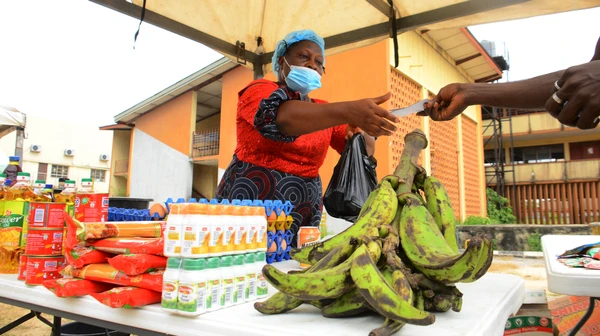Oluwakemi Sule runs a small stall in one of the largest markets in Lagos. Every day, the 53-year-old mother-of-three sells her goods on a street-level plank atop a dry gutter at Ojuwoye Market in the Mushin neighbourhood of Nigeria’s most populous city. Her husband died three years ago, and since then she has been the sole provider for her three children, who all rely on her stall to survive. Each item she hopes to sell has been purchased with loans taken from a microfinance bank.
With Nigeria among the countries with the highest population of people living below the poverty line, a majority of Nigerians do not have a deposit bank account, with many unable to meet the requirements for a conventional bank loan or savings account. In its place, microfinance banks have become the most convenient way to secure capital for the country’s poorest….
To read more, check full article on Vice.

